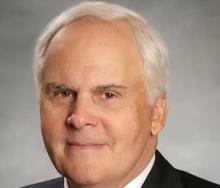Fuel price relief measures will put R10 billion back into motorists’ pockets, but the reprieve will be short-lived as inflation bites deeper into household budgets, raising workers’ wage demands.
PwC’s latest South Africa Economic Outlook April 2022 report highlighted the impact of the KwaZulu-Natal floods, the war in Ukraine, the resurgence of Covid-19, Shanghai’s lockdown and the lag in imports from the region, on local production and inflation.
“Consumer price inflation has been elevated since late last year. A combination of base effects and higher commodity prices pushed headline inflation towards the top end of the central bank’s 3% to 6% target range from December 2021 to the present,” PwC said.
Statistics SA data most recently measured Consumer Price Index (CPI) inflation at 5.9% in March - up from 5.7% in the preceding two months. This included a 7.2% month-on-month and a 33.2% year-on-year increase in fuel prices during March.
“The main driver was an increase in international fuel prices, with Brent crude oil prices reaching near $100/barrel at the end of February as the Russian invasion of Ukraine ruffled commodity markets,” PwC said.
However, the authors noted that March’s inflation data had been surveyed early in the month and did not reflect the “significant impact” of global supply disruptions caused by the Russian invasion of Ukraine.
The petrol price increased by R0.36/litre, which was less than feared after the price of Brent Crude Oil climbed to $130/barrel in the second week of March.
This came after Finance Minister Enoch Godongwana announced a temporary reduction of R1.50/litre in the fuel levy implemented from April 6 to May 31. He earlier said there would be no annual increases to the general fuel levy or the Road Accident Fund levy from April.
“Our tax experts have estimated that these relief measures would reduce fuel costs by at least R10bn over the coming year and put this money back in drivers’ pockets,” PwC said.
However, the company’s economists added that overall inflation was increasing trade unions’ salary and wage expectations, which would add to businesses’ financial pressure.
“The local labour movement is powerful in its ability to shape remuneration trends due to the country’s high rate of unionisation,” the report pointed out.
According to the International Labour Organisation (ILO), South Africa ranks 26 out of 104 countries for union membership, with a trade union density rate of 28% in 2016 based on the latest available comparative data. This is higher than the average of 22% among the 104 economies.
“Due to this high density rate in South Africa, the flexibility of wage determination is constrained,” PwC said.
The World Economic Forum (WEF) Global Competitiveness Report 2019 ranked South Africa 134th out of 141 countries for wage determination flexibility, while cooperation in labour employer relations was ranked worse at 139th.
“Trade unions’ expectations of salary and wage increases are highly influential in remuneration agreements. Amidst a low inflation environment and moderate inflation expectations amongst unions during the first half of last year, the average wage settlement rate in collective bargaining agreements decreased from 6.3% in 2020 to 4.4% in 2021,” PwC said.
A Bureau for Economic Research (BER) Survey of Inflation
Expectations shows that in 2021H1 trade unions were expecting salary and wage inflation of less than 4.0% during 2022.
“Understandably, with the inflation environment deteriorating as 2021 progressed, labour representatives increased their expectations,” according to the report.
SARB data shows that nominal remuneration per worker in the formal non-agricultural sector increased by 3.6% in the first quarter of last year, but swelled by 10.1% in 2021Q2 and 9.1% annually in 2021Q3.
“In the private sector, nominal remuneration increased by an average of 12.3% year-on-year during the second and third quarters,” PwC said.
The reported noted that there were some strong base effects due to the labour market developments associated with the 2020 recession and Covid 19 lockdowns. However, this had catapulted recent remuneration growth into double-digit territory and raised workers’ expectations.
“The latest BER research shows that unions now expect salary and wage inflation of 6.1% this year and 6.3% in 2023. These numbers could increase further with the next quarterly inflation expectations survey,” PwC added.













